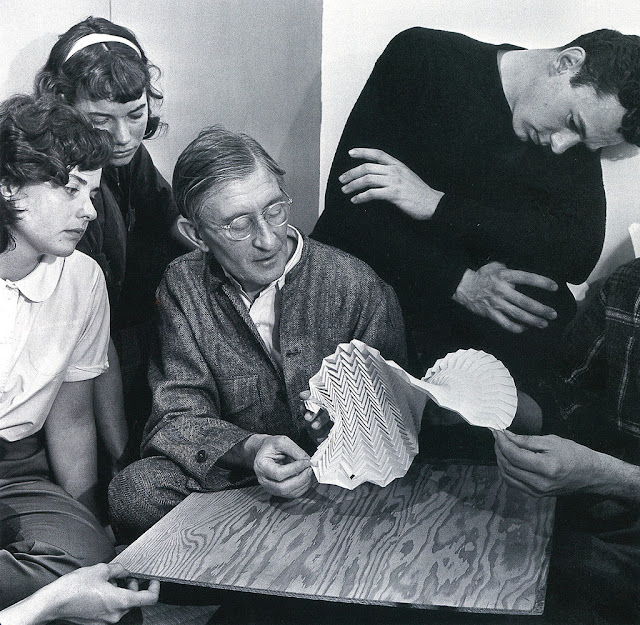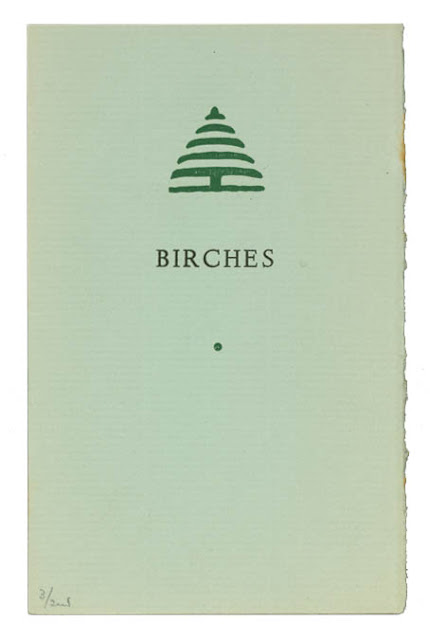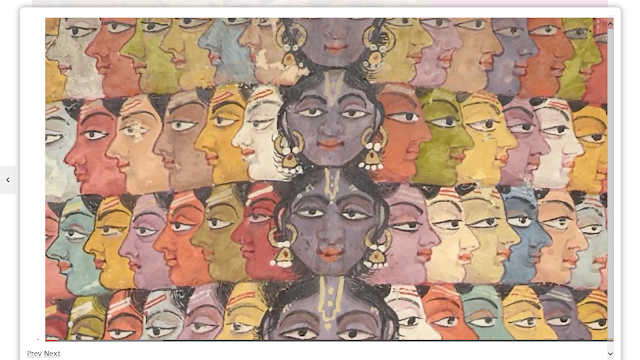M A J Z O O B
This is not a poem. Those mentioned below are from entries in William Donkin's compendium of God-intoxicated souls known as masts: The Wayfarers: Meher Baba with the God Intoxicated.
Khudi Bakhah
An old man with ragged clothes.
He sleeps in a baker's shop.
The baker sees to his needs.
Previously he had been sitting for forty years in a wayside shrine,
and during all those years spoke to no one.
He is fond of tea, but eats very little.
Mastini Malai
She lives alone in some ancient and disused stables
about a quarter of a mile from the Taj Mahal.
She is big, strong, and roars like a tiger.
Raja Nam Mahatma
He lives in a small fortress-like hut isolated in the sandy wastes of the Jumna river bed.
Raji Mastan
He wanders about naked.
.
Tinpot Baba
He sits in a hollow at the side of a street, with a tin pot in front of him.
Milan Sheb
He cries out the Persian couplet, Khud be kud azad budi, huud gireftar amadi (You became free, and then allowed yourself to be caged).
Gariwala Baba
A man with no teeth.
The local people bring him water and food.
He never leaves the hut.
Naralin Baba
He dwells in a temple by the river.
Shivan Maharaj
He lives in a temple consecrated to The Monkey Grammarian: Hanuman.
Shah Saheb Mastan
His physical appearance is said to have remained unchanged for the past thirty years.
Nanga Mast
He walks with his eyes turned upwards so that only the whites can be seen.
It is a puzzle how he manages to walk like this, without colliding with people and objects.
He is irrational.
\
Name unknown
He carries a small bed on his back and walks along ringing a bell, then sits on a charpai.
Hafizji
He hangs plates and tins and odd bric-a-brac on the branches of a tree, in the shade of which he sits.
He lives on a mountain facing the Amber palace, and each morning comes down to Amber village, takes some sweetmeats from a shopkeeper who gives them to him, and speaking to no one, returns to his mountain.
About half-way up the mountain, at a small temple where there is a spring of water, he washes, eats the sweetmeats, drinks water, and then goes to the mountain top.
After refreshing himself with sweets and water, he fashions mud balls which he explains are "fire balls" for the purpose of throwing on big cities in other parts of the world.
Because of this he is very very busy.
He uses a peculiar forked stick with knots of old rags on it, to aim and point towards the cities on which he throws the fire balls.
Sometimes he hits those who observe him and tells them to go away.
Jampia
His behavior seems more like that of a mischievous monkey than of a human being.
He squats next to anyone eating, and if they divert their attention from their plate for more than a few seconds, he will plunge his hand into their plate and purloin a huge handful of food, which he will at once force into his mouth and swallow as soon as possible.
He throws shoes out of windows, pulls hooks out of wall, works shelves loose from their brackets, bangs loose things about, and is tirelessly active day and night.
He climbs on high shelves and squats there.
He picks up his own ordure, flinging it vertically into the air, and tries to stand so that it falls down on his head.
His talk is babble that nobody understands.
Dada Maharaj
A majzoob-like mast.
Mauni Baba
Silent.
Maulnath Mast
Naked for many years near a temple in Amritsar.
He wears a monstrous turban the size of a parasol, and does not allow people to sit crosslegged before him, for if they do so, he orders them to uncross their legs.
If he sees stones in the street he puts them in neat piles, but never speaks.
He has a disciple who plays a sitar.
Karigar Baba
He rushes about shouting, "In the jungle are many thorns."
He sits on the porch of a pleader's house and says, "Jao, jao," (go away) to everyone.
He is unconscious of his bodily functions.
The pleader personally washes him, and keeps him as clean as the mast allows.
Grotesquely thin, naked save for a loin-cloth, he keeps a massive slab of iron on which have been embossed all sorts of names of God, in many tongues and of many religions.
Bansi Baba
He lives in an upper room, and an old woman known as Mai (Mother) serves him. Every day scores of people come from surrounding districts for Bansi Baba's darshan, which is given at particular hours. They are taken upstairs to a dimly lit room, of which the darkness is the first thing that strikes them. At one end of the room, he sits on a kind of throne, one foot resting on a foot-stool. He seems very bright in that dark room, and there is an overwhelming feeling of peace and love that visitors feel strongly. He is naked to the waist, and wears a brown turban, a short dhoti, and costly sandals. People in Bansi do not know his age, but he is believed to be about 250 years old. He sits quite still on his throne-like chair, as if he were a statue. He is very thin, mere bone and integument, but there are no wrinkles on his fair skin. His aspect is most kingly, for his presence dominates that dark room, and the bliss and peace he radiates makes him a memorable personality.
Name Not Known
A yogi, naked except for his loin-cloth, lives in a hut on the bank of the Beas river in this high and lovely valley of Kulu. Here the Beas is a rushing mountain torrent overhung by willow trees.
Monsoon Baba
Blackness.
Creatures' voices.
Trees:
only their clouds
of fragrance
scenting the air--
nocturnal flowers.
All
the color
of thick ink:
drowning
my very soul,
horizons of hopes
closing in
about me.
How
to find the form
of this
omnidirectionl
darkness?
I sit
for hours,
swaying body: back
and forth, back
and . . .
like a caged black
panther
pacing . . .wall
to wall. . . .wall
to wall . . .
Infinite.
Darkness
is infinite.
I think.
Things
of this world and
myself
are separate
from darkness.
Is there
a dark god
within
this boundry-less
night?
Before
I met my dance guruji,
there were those who would try
to console me.
“Darkness is a way of transcendence.
Your soul
dances about
a dark-limbed maiden
dressed
in black
silk,
adorned
with black
sapphire
necklaces,
with ink-black
peacock
feathers
dangling
from ear
lobes—
hair
and sari
soaked
clinging to breasts
as you steal through
world-swallowing
monsoon
darkness
to embrace
your lover.
Fathers,
brothers,
husbands
—all of society—
calling out
as you rush
into night:
'What
is wrong with you?’"
Others advised
that seers
of their own hearts
trust darkness
to guide surely
to the core of
secret union:
darkness thick enough
to caress,
darkness eroding
away every
particle
of space
time
reason
vision.
The first dance
our guruji
taught us
—we visually challenged ones—
on a darkened stage—
the invocation of the Lords of Directions:
darkness,
spatial directions,
rhythm.
Then
planting,
upon the proscenium
the Thunderbolt,
propping
apart Heaven
and Earth,
space making
each act
of creation
possible.
And so it was:
I—
and all the members of my troupe—
discovered
we
were not souls
forever lost
in limitless
monsoon blackness.
We were souls
who
could
create. Souls who could
become
ourselves monsoon
and movement
and moonlight.
We
—who as children
had stumbled forward
feeling
to find
the form
of darkness—
could
now
fly
through
fluttering evolutions
of Indian classical dance—
we could
stand
on the stage
in the pose
of the Dark One,
Krishna:
fingers in
flute-playing
mudra,
and feeling
and fashioning
the hearts of our
of our audience.
On university stages:
thoughts in the hearts of scholars who reason
Krishna to be legendary,
the hero
of a sexually free
tribal people.
On the stages of yoga studios:
bliss
in the hearts of yogis and yoginis
feeling Krishna filling their
full being.
On stages
of small Indian villages:
rapture
in innocent hearts
of men
and women envisioning
themselves
lightning-bright maidens
engulfed by that august ring of dark clouds
their ebony Lord.
And so
it is
we feel into
the hearts
of the many forms
of that inky infinity
people call
by different names—
we perceive
divinity
through blackness;
sense worlds
through formless,
sable presence;
love
by dancing
drunkenly
forward
through ebony
raptures, horizons
of our being
dissolving
into ink-black
vastness,
perceiving
forms
others cannot:
the luminous forms
of sincerity,
of devotion,
of transcendence.
.
































Comments
Post a Comment